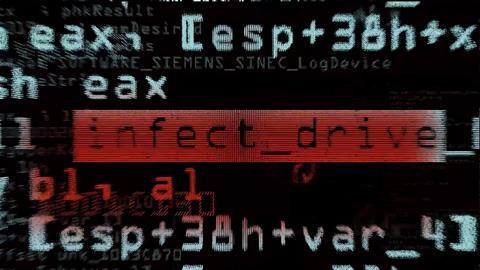Dir: Alex Gibney, 2016, US, 116 mins

In the new world of cyber warfare, it’s understandable that things should be unimaginably complex, and one of the key metaphors in Zero Days (although it’s as much scientific fact as metaphor) is that certain kinds of complexity rapidly expand beyond easy analysis. That’s partly what often makes the latest documentary by the indefatigable Alex Gibney exciting and troubling, but it’s also why Zero Days often feels like a breathless rush of data that only truly coheres at certain points – notably at the end, when the point is made that the Pandora’s Box of cyberwar has been opened and that the world needs to find ways of dealing with it.
In short, Stuxnet has spread beyond its creators’ control, so that it could now easily be used against the US - for example, to shut down the power grid.
The importance of the theme and the established appeal of what is by now well established as the Gibney ‘brand’ (this film explores an area close to Gibney’s 2013 Wikileaks doc We Steal Secrets) will make this a must-see for anyone interested in how cybertech is changing politics; even if a more cool-headed analysis would be welcome in this informationally cluttered film.
Zero Days begins by looking into the discovery by IT experts in 2010 of the so-called Stuxnet virus, which defeated all attempts to identify its source: suffice to say that this malware, notable for containing an unprecedented number of ‘Zero Day Exploits’ (it’s a computer thing) was “beyond our worst fears”, as one expert puts it.
Gibney, at a couple of points, gives us a comic montage of officials refusing to discuss this ultra-classified phenomenon. Interviews with journalists, techies, security specialists and other pundits eventually get to the core: Stuxnet was designed to incapacitate the nuclear facility in Natans, Iran, part of the Iranian nuclear programme.
Eventually, the hard information about Stuxnet is delivered by an anonymous insider figure, depicted as a blonde woman whose features are blurred by stylised CGI effects. Stuxnet was created and launched by the CIA, NSA, the US military, the UK’s GCHQ and Israel, its function to cause physical damage though undetectable means. It transpires, however, that Israel unilaterally changed the coding of Stuxnet, causing it to proliferate uncontrollably – also leading, paradoxically, to an eventual expansion of Iran’s nuclear capacities.
In short, Stuxnet has spread beyond its creators’ control, so that it could now easily be used against the US - for example, to shut down the power grid. But Stuxnet is only one example of a programme which could cause untold harm to lives in any territory: we hear of a far more powerful initative called ‘Nitro Zeus’ (such names make the old ‘Star Wars Initiative’ sound reassuringly cosy). Even General Michael Hayden, former head of the CIA and NSA, expresses doubts about the ethics of such undertakings, and the film ends with the clincher: Gibney’s secret informant, played by actress Joanne Tucker, is an aggregate of concerned informants within the NSA who want the facts to be available, as secrecy is now more dangerous than ever.
Viruses like Stuxnet change everything: what’s at issue, says one interviewee, is “full scale cyber war with no attribution”, i.e. waged in absolute covert conditions, and therefore impossible to regulate by any sort of treaties.
While the urgency of the message emerges powerfully, the details are often hard to absorb, as Gibney skips from political information to technical specs. There’s also the problem of making computer-related information visually interesting, and there’s too much distracting use of 3D panoplies of codes filling the screen. Talking heads zip by in quick succession, and by the end, just as the film calls for moderation and caution in pursuing computer war, you end up feeling that lucidity could similarly be useful for documentarists dealing with such byzantine cyber-complexities.
Production companies: Global Produce, Jigsaw, Participant Media
International sales: FilmNation Entertainment, nyoffice@filmnation.com
Producers: Marc Shmuger, Alex Gibney
Executive producers: Jeff Skoll, Diane Weyermann, Sarah Dowland
Cinematography: Antonio Rossi, Brett Wiley
Editor: Andy Grieve
Music: Will Bates
























